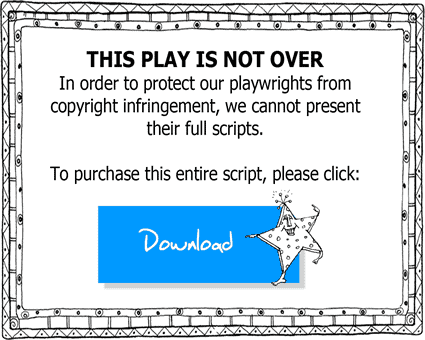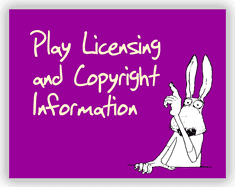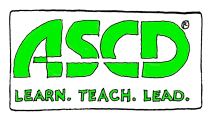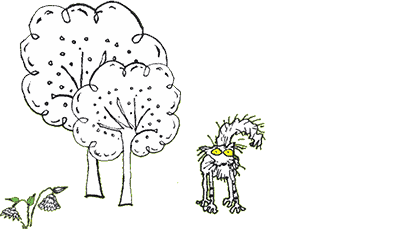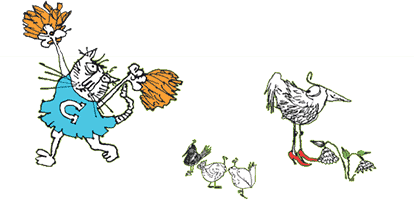The Star Counter is an original fantasy about two creative and adventurous former school friends who are reunited one evening by chance. Bates is fascinated by the night sky and Colby is a budding inventor. Bates is trying to count how many stars there are because no one in her technologically backward civilization seems to know. Although Colby is initially skeptical, he offers her his newly invented “toy” as a possible help: a simple magnifying glass. The glass now reveals that there are far more stars than either imagined! Has the task now become impossible? As the two of them confront this dilemma, an unfamiliar and profound bond forms between them, and they find a way forward.
Paul Antokolsky has been active in theatre since his days as an award-winning actor in high school. As a playwright, his shorter works have been performed in recent years across the U.S. and in England, and on radio for National Public Radio. He has extensive experienced as a cable-TV and radio host/producer, and has been recognized for creative production by CNN-TV Boston.
Excerpt from the play:
CHARACTERS
BATES - The star counter. Thoughtful, gentle, determined. Female (or Male).
COLBY - An amateur inventor. Insecure; impulsive when excited. Male (or Female), of a similar age.
STAGING:
The set is bare. The only prop is a hand-held magnifying glass.
Setting:
Outside in an open place. It is a dark, clear night.
At Rise: BATES is On Stage, looking up, with a finger pointing from star to star and with lips silently moving as she counts. COLBY enters.
COLBY
Hey, Bates. Haven’t seen you in a while.
BATES
(Turning toward COLBY in surprise.) Now there’s a voice I remember. How are you?
COLBY
Oh, about the same, I guess.
BATES
Really? Are you still building things down in that basement of yours?
COLBY
I sure am.
BATES
You know, I remember – I guess we must have been in the fourth grade then – you made a wagon with rubber bands that made it move all by itself and brought it into school.
COLBY
(Flattered, a bit flustered.) You remember that? Well, it took a bit more than rubber bands – and I have done a few things since then, too, you know. Nothing that’s amounted to much yet – but I keep trying.
BATES
That’s the most important thing.
COLBY
(Looking around, with a dubious tone of voice.) So, what are you up to?
BATES
(With a grand wave of the hand.) The stars, Colby. The stars.
COLBY
(Condescendingly.) Not waiting for some space ship to come back and pick you up, are you?
BATES
(Choosing to not take offense.) No, actually, I don’t think that sort of thing is likely to happen. (Quite proud but trying to sound matter-of-fact.) Actually, I’m counting them.
COLBY
The stars?
BATES
That’s right.
COLBY
Not all of them.
BATES
But, of course, all of them. Otherwise, what would be the point?
COLBY
Now, that’s a good question. What is the point?
BATES
At the very least, to know how many stars there are, don’t you think?
COLBY
(Disapprovingly.) I guess so.
BATES
(Thrilled by her own words). Come on, don’t you get excited when you find out something new? You can never tell what it will lead to, and if it’s something that’s really new, something that no one else already knows – what could be better than that?
COLBY
But somebody must know how many stars there are. They’ve been there forever.
BATES
Yes, you’d think so, wouldn’t you? But I’ve checked all the magazines and history books, and, oh there are a few vague guesses, every one of them completely different – because no one really knows. (Deflated.) And, frankly, no one really seems to care, either.
COLBY
Maybe there’s something to be learned from that?
BATES
Oh, really? And do you let the indifference of others decide which ideas you’ll explore?
COLBY
Of course not. Not usually.
BATES
I wasn’t clever like you and some of the others, but I still wanted to do something important. And you can’t always tell which things will be important ahead of time, so you just have to find something big, and go do it. The only reason we don’t know how many stars there are is because no one’s ever made the effort to find out.
COLBY
Until now.
BATES
Yes!
COLBY
(Unenthusiastically.) Quite a project, I’ll give you that. But doesn’t it get boring? I mean, (Gesturing as though he was counting.) 837 stars, 838 stars –
BATES
Actually, I’ve found that caring about the goal makes the process quite pleasant, and I just keep moving ahead.
COLBY
(Looking up.) I bet you get a stiff neck.
BATES
From time to time.
COLBY
(Facetiously.) Maybe you should try it lying down with a nice pillow under your head.
BATES
Or maybe, if you really wanted to be helpful, you can help me count.
COLBY
Me? I’m no astronomer.
BATES
None of us are anything until we try, now are we? What do you say?
COLBY
I don’t know… (Yielding to BATES’ enthusiasm and innocence.) Well, maybe for a while.
BATES
There you go. Now, you see that bright yellow star over there? Just start with that one and go to the right.
COLBY
“…and go to the right.” Got it. (They both count silently for a moment, each facing a different portion of the sky, their fingers pointing as they count.) Bates?
BATES
Yes?
COLBY
Some of these stars are so faint, I swear they keep disappearing on me. I can’t even tell if they’re really there.
BATES
The way I see it, something can’t disappear unless it’s there to start with, so just count them all.
COLBY
But why should we count the dim ones just like they were the same as the really bright ones?
BATES
Think of it like we’re counting people. Everyone may not get to stand out, but they all get counted equally, don’t they? Everybody matters and so does every star.
COLBY
I guess so. (They both count in silence for another moment.) Hey, Bates?
BATES
(Starting to get annoyed with the interruptions.) Yes, Colby?
COLBY
Do you ever wonder what the stars really are?
BATES
Oh, of course, but I have no way of finding out.
COLBY
(Finding his comfort zone as he relates his pet idea.) Want to know what I think? I think they’re all just a bunch of pinholes in an enormous piece of black cardboard.
BATES
Pinholes? And what makes the light?
COLBY
Behind the cardboard, there’s this really big fire.
BATES
(Laughing.) I’ve never heard of that. And what makes the stars turn in the sky?
COLBY
The wind from the fire, I guess.
BATES
And where did this fire come from?
COLBY
I’m still working on that.
BATES
Well, I have to hand it to you. You’ve got quite an imagination.
COLBY
You can’t be an inventor without imagination. Hey!
BATES
What now?
COLBY
I just had a great idea. What a dummy – I should have thought of this before we started.
BATES
(Anticipating a disappointment.) And so now you’re heading back to your workshop?
Why Subscribe?
 Inside Drama Notebook, you will find a huge collection of well-organized lesson plans, scripts for kids, drama activities, 50 drama games on video and more! Join today and dramatically reduce your planning time while delivering fresh, innovative drama lessons to your students! If you are new to teaching drama, this site will be a Godsend! You will immediately feel confident about teaching drama like an expert. The site guides you step-by-step and provides you with materials that you can use right away with your students.
Inside Drama Notebook, you will find a huge collection of well-organized lesson plans, scripts for kids, drama activities, 50 drama games on video and more! Join today and dramatically reduce your planning time while delivering fresh, innovative drama lessons to your students! If you are new to teaching drama, this site will be a Godsend! You will immediately feel confident about teaching drama like an expert. The site guides you step-by-step and provides you with materials that you can use right away with your students.
If you have been teaching for years, Drama Notebook will inspire you with a fresh new approach and innovative ideas!
The site is packed with original, innovative lessons and activities that you will not find anywhere else—and new materials are added monthly.
This site is protected by reCAPTCHA and the Google Privacy Policy and Terms of Service apply.




